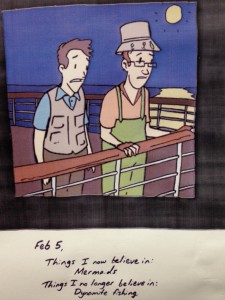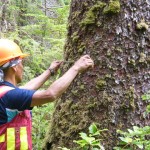
My Treasured Chinese Lesson In Environmental Modesty
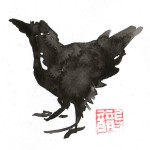 Until a few years ago I had never been to China. All that I knew of China came from what I’d read or seen on TV.
Until a few years ago I had never been to China. All that I knew of China came from what I’d read or seen on TV.
Then my eyes were opened to the real world of China, a more gentle and caring nation than I had been led to believe.
Those few years ago I was asked by a colleague who worked with the UN if I might lend a helping hand on a project he had been working on in China. He’d was helping the Chinese government learn more about the emerging world of climate change mitigation, carbon offset projects, and especially forestry projects.
His task was to find experts who he could take to china to give some advice to the Chinese on how the work they do or might do in forestry might qualify to produce carbon offsets. Everyone in the world of forestry was looking hard at carbon forestry at the time in hopes more trees might help save this planet.
It would be my first opportunity to visit China and I was happy to make the trip, especially as an expert representing the UN. My company Planktos at the time was in early development and all my colleagues there were not in perfect agreement with this plan of me going to China. But I had lots of vacation time saved and it was agreed I could use the break and could go as a working holiday. My Visa was expedited and tickets arranged and I did what reading and internet research I could before leaving.
I was your typical western environmental person, I’ve worked extensively in governments, industry, NGO’s, and in my own businesses all on the path to do well by doing good. What I knew I learned from reading, it was almost all about the environmental problems of China. I had etched in my minds eye images of ugly coal fired power plants, piles of waste, and all manner of Chinese environmental bad press. The information on their forest practices was scant. One area of China I was working with my UN colleague was the Red Pine forest regions to the North. It at least was much like the forests of British Columbia where I have a devoted my life to forest ecology and forest restoration. I was looking forward to visiting (and hugging) those Chinese trees.
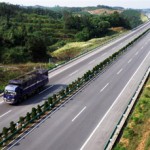 When I arrived after the long flight to Beijing I was met by my host and a driver. The airport is a long drive out of Beijing and on that drive into the capital I noticed something I had not imagined. All along the highway into the city centre there were large numbers of trees planted. I mean not just a few trees here and there along the highway shoulders but lots and lots of trees.
When I arrived after the long flight to Beijing I was met by my host and a driver. The airport is a long drive out of Beijing and on that drive into the capital I noticed something I had not imagined. All along the highway into the city centre there were large numbers of trees planted. I mean not just a few trees here and there along the highway shoulders but lots and lots of trees.
With my trained eye as a plant ecologist and forest specialist, I could see that the trees had been planted over many years, I guessed 20-30 years. All the age classes representing a regular program of planting was apparent. This wasn’t just some highway beautification program this was determined well executed reforestation. I’d seen the like of it in the west, but along a highway nothing quite compared.
Over the course of some days of meetings in Beijing with our Chinese government hosts we had our itinerary planned. First we would drive to Qingdao, City (Canton) on the coast. There we’d meet with officials in the government who worked on “environmental” programs. It’s a long drive from Beijing to Qingdao, and on that day of driving on a great super highway, you’d not notice the difference between that highway and any one of similar Interstate highways or Autobahns in the US or Europe. Having grown up in the North America car culture I’ve done a lot of road trips in my life. This was another. It was a great way to look out of the window and learn about the land as we sped by.
The incredible traffic jams and roads with every imaginable wheeled conveyance of Beijing turned into that superhighway which had many nice passenger cars and many many trucks, few old cars. We passed through agricultural areas and at one point I could see in the distance one at least of those iconic ugly power plants or factories belching smoke from fires fueled by Old King Coal.
But once again almost everywhere that trees would be planted, there was the same 20+ year evidence of determined treeplanting effort. Not just some shrubs and decorative trees at the interchanges… but as many trees as I might have imagined in my fondest treeplanter dreams that I might have supervised to be planted in my life as a treeplanter and eco-restoration specialist in Canada. The people of China were clearly treehuggers like me!
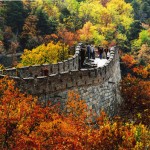 In Qingdao,I met with a team who was working on replanting forests along the Great Wall of China. The wall meets the sea there. The city dates back to the year 214 bc, it’s one of China’s great port cities. It would be the host city to the sailing events of the coming Beijing Olympics the following year.
In Qingdao,I met with a team who was working on replanting forests along the Great Wall of China. The wall meets the sea there. The city dates back to the year 214 bc, it’s one of China’s great port cities. It would be the host city to the sailing events of the coming Beijing Olympics the following year.
The first day of business in Qingdao, started with meetings. We walked into a large meeting room that was filled with Chinese environmental people. These would be my first encounters with practical field level environmental professionals in China. One of the things we were to discuss was how plans to plant trees along the Great Wall of China might be developed as a carbon forest project. I was expecting something quite different than what I found.
There in the room were a dozen or more people. Some were in business suits as I expected but many were in their day to day working garb. Those were dressed just like the forestors and field biologists I was one of in Canada and the USA. They wore jeans and woodsy shirts and some even had on “cruiser vests” festooned with field gadgets.
I’ve been in a thousand meetings with people dressed just the same, even now I keep some of my trappings of field work in my office. The rain proof notebooks, the waterproof pencils, the navigation tidbits, all were there. It was like I was coming home. And then my eyes were opened further.
Over the course of the meeting we talked, naturally with translators help, about how these people managed their environment. They were responsible for a vast region which had sea coast, river flat lands, forests and mountains. Through the province ran the Great Wall which started here on the beach. In the room were senior managers along with specialists in many fields. They had it covered from bugs and grasses to birds and mountain forests.
The field biologists had brought the most marvellous scrap books full of photos of their working world. They knew every grass and moss, every bug and bird, every tree, rock and soil type. In all my years of being in such meeting in government offices in North America I’d never seen the match for or better breadth and depth of work and sincere passionate interest these people showed me. My eyes were opened, and it makes me smile just recounting this experience in these words.
Toward the end of the day I asked one of the senior people what I thought was a pressing question. I explained to him that in my experience in the west when those of us who are “environmental” specialists have such similarly wonderful and graphic materials to tell of the good work we have been doing — we publicize it. We call it crowing about it as crows at home and in China do so loudly and prominently when they are happy about something. Why, I asked, were they not publicizing their good work. Everyone in the west does. From my preparation for coming to China I’d not found such reports and I knew what I was looking for.
His response to me was accompanied with a timid look which transformed into a concerned one. “We would never do that. What we all do we know is the right thing to do. It is our duty and our privilege to do our best for our environment. Everyone knows this. it would not be proper to brag about doing so. “ He was clearly correct, I’d experienced it in the people in the room. They were my people, I knew them well. I’ve drunk a thousand cups of tea in the forests and fields while at work with them. These were working environmentalists every one. Giving back to nature. Doing their best. All because it was not only their job but their passion for doing what is right.
In other meetings in China I came across more of the same. Professionalism combined with modesty. No need to crow about it doing what was right and doing it well.
Later I discovered all those trees which I’ve mentioned seeing everywhere, started to be planted some 20+ years previous, were part of a nation wide effort where Chinese people are expected to each plant five trees per year. It just works. No nation outside of China show such a dramatically wonderful effort.
Our western way of claiming “bragging rights” to our good work can get in the way of the work. Far too often the “bragging” becomes the work. Certainly for many so called environmentalists in the west their work is only to find fault, criticize, and brag about the environmental nightmare images that they tout and write about as being the work of bad people. Their work seems not to actually involve getting some mud into the tread of their Vibram soles/souls and hiking shoes. For most in the west Vibram soled shoes all too frequently wear out never having seen anything but pavement.
I am far too frequently desk bound. However in a few days I’ll need to dust off my forest cruiser vest and clean up the GPS, compass, clinometer, and tree coring tool as it’s off to survey a few hundred hectares of forest that needs some help. With luck I’ll come back with a scrap book to keep as a silent record for what I have seen and learned. I’ll remember the faces of and think of my Chinese kin while I am amongst the trees.
Sometimes one just has to crow.

